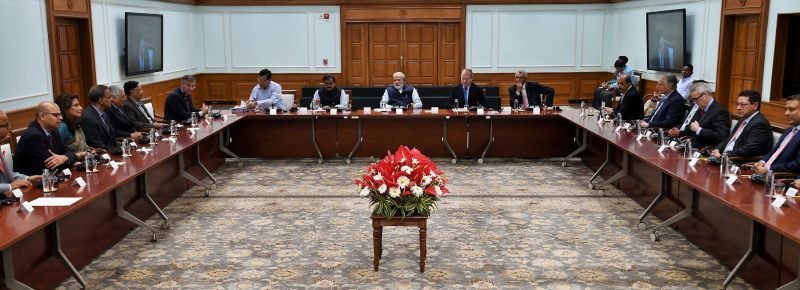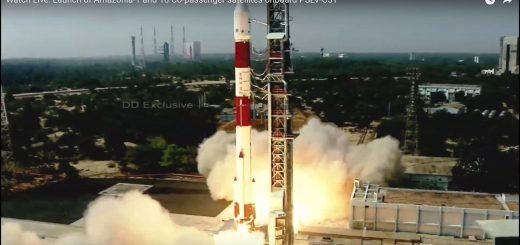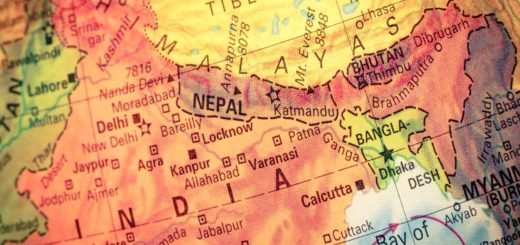Third Annual Summit of US-India Strategic partnership forum

The US- India Strategic Partnership Forum (USISPF) kicked off its third Annual Leadership Summit this week. USISPF is an independent entity across the US and India focussing on strengthening the cooperation between two countries. It is a week-long discussion on navigating new challenges and enhancing the economic and strategic partnerships between India and the United States which started on Monday, i.e. August 31st and will continue till September 4. The summit titled ‘US- India Navigating new challenges’ and was set to discuss the roadmap for India- US energy Partnerships, areas of Indo- US bilateral cooperation including trade and investment, strategic energy collaborations, ties in fintech, healthcare, technology, and India’s position in the global supply chain.
A crucial highlight of the meeting is that India is ready to sign a trade deal with the US. The deal could pave way for India- US Free trade agreement. The US is yet to take the final call. The minister referred it as a ‘foundational’ stepping stone to a larger and more ambitious free-trade agreement. Top American diplomats mentioned that the US is eager to help India become a world power which contributes to net security.
On Monday, US Deputy Secretary of State Stephen Beigun, ambassador Tim Roemer US Vice president Mike pence granted the courtesy from the US side. Indian external affairs minister, S Jaishankar, and Minister of Industry and Commerce have addressed the summit earlier this week. The summit is also being attended by top corporates, government officials, and leaders from India and the US. PM Modi is also going to deliver a special keynote address in this series today at 9 PM through video conferencing.

Joh The chairmen of USISPF made the welcome remarks pondering on how the vision of the forum shifted from ‘how much trade the two countries do’ to a vision that how they can change the role of countries in terms of innovation, across gender barriers, religious barriers and can focus on innovation and job creation across the 29 states in India and 50 States in the US. He called it a win-win relationship. The theme for last year’s summit was ‘Partnering for Growth’ But the past 12 years had witnessed the many upheavals worldwide and hence the theme for this year is ‘Navigating through new challenges’. The relations between the two democracies are changing at an enormous speed. It is evolving from a trade organization to an enabler between groups in a way that has never been done before. While the theme is around peace and stability and prosperity, the four days are set to focus on defence, economic relationships, and education.
The second one to take the hold was Mr Marc Aleen, Senior Vice president of Boeing and member of the Boeing executive council and member USISPF. He stressed upon the convergence of geopolitical interests, business trade, and shared democratic values and the rule-based order shared by the two nations and the value of stable and peaceful pacific. It is imperative to the relationships growing in the era of unprecedented growth.

Then the floor was taken over by the dialogue between Ambassador Tim Roemer and Minister Jaishankar. They begin by reflecting on the upcoming book of Minister Jaishankar, INDIA WAY, which talks about the recent transformation of the world and how this requires India’s bolder relationship in the neighbourhood and a bigger footprint in the world. EAM Jaishankar stressed how India’s growth has to be a lifting tide for the entire region. India is investing immensely in its neighbourhood in terms of electricity, fuel, waterways, ports, railways, businesses, and so on. And not just that, India is striving to embolden its economic, technological, and security footprints all across the world.
They talked about how India is promoting policies that would incentivize investment and working together in both countries towards building a mutually beneficial relationship. This pandemic has brought out the importance of resilient and trusted supply change. The nations around the world need partners who can be depended on even in difficulties. And this relationship and level of political trust between India and the USA is a very important driver of future business between the two countries. They also pondered on the deepening convergence of policies, exercises, equipment, trade in the defense sector, and how the defense relationship can pave the way for some breakthroughs on the commercial side as well too. US and India have so many similar interests and that’s is what is an integral part of a larger India – US potential role in the world situation today. The United States is looking at, a country like India which has never been in any alliance situation, with a much more open mind than it used to in the past. And, India is also looking at countries with whom there is a strong identity of interests. So, it will become much more pragmatic perhaps than it was in the past.
The next part covered up India’s policy of “Atmanirbhar Bharat”, a more self-reliant India, a program to increase its national manufacturing capacity. India is growing and seeking to expand its capacities. It is interested in sort of global value chains now including passing through India and using Indian production capacities as part of a chain, and the fact that India would be seen as trusted and seen as resilient is something which should be helpful.

Ambassador Tim Roe then jumped them onto the effect of immigration policies on the vibrant Indian diaspora in the United States asked how this benefit both the countries. To this, Mr. ambassador accentuated the reality of a more digital and technology-driven world, which puts a premium on talent. And if there’s one thing which India can offer to the world; it is trusted talent. Indians are working across companies in the world and they’ve always done the right thing at the right place. So, there is a great deal of regard and trust for Indians and people of Indian origin. Mr Minister stressed that a more knowledge-driven global economy will require more trusted talent and that’s an opportunity for India. It’s an opportunity that should be reflected in some degree in American immigration policies. He revitalized that people recognize the enormous sort of role which Indian talent has made in the American economy, the global economy, and cut back in India, the catalytic role that they’ve had, and hence these policies are in the interest of both the countries.
There’s intense, vibrant competition for talent and capital and supply chains and the more of the United States and India can work through some of these issues, the better economic systems will be, the better recovery from coved and the stronger both democracies will be.

They also deliberated upon china’s aggressive posture around the world, the South China Sea, to Huawei and technology and how it affects the delicate relationship between India and Pakistan. Minister Jaishankar reiterated that we are very cognizant of the rise of China. India is its immediate neighbour and very directly impacted by the rise of what his book mentions, ‘potential global power’. India has also been rising in this period, though not at the same pace as of China, but looking back to past 30 years tells that India’s rise has also clearly been one of the major global stories. So, he mentioned, it’s very important for the two societies that they reach some kind of understanding or equilibrium between them otherwise this modus vivendi between India and China, is extremely consequential for both countries and actually for the rest of the world. China’s relationship with Pakistan is not new, it goes back actually to the early 60s. Aspects of it have been of concern to India before as well.
The final note addressed the Indian perspective on America’s role from military power, soft power, and prestige perspective. Mr. minister summed up by being respectful towards the United States and the relationship that has steadily grown between the two countries. India follows all the developments of the US around the world with deep interests and admires the remarkable sort of sense of resilience and unique footprints and linkages of the US with the world.


















